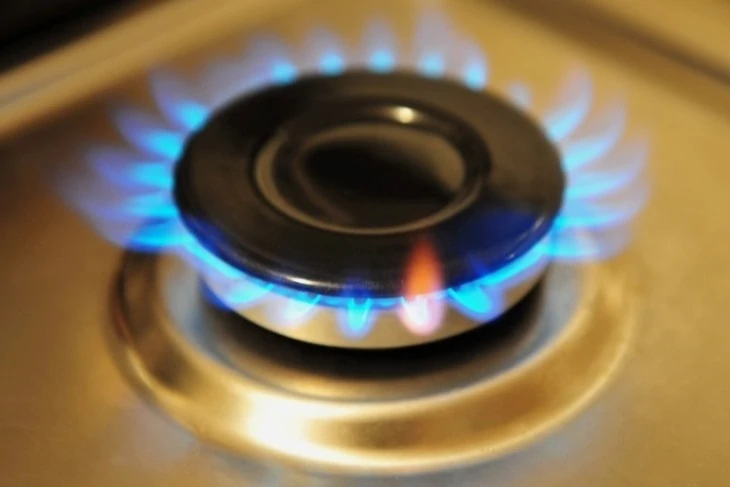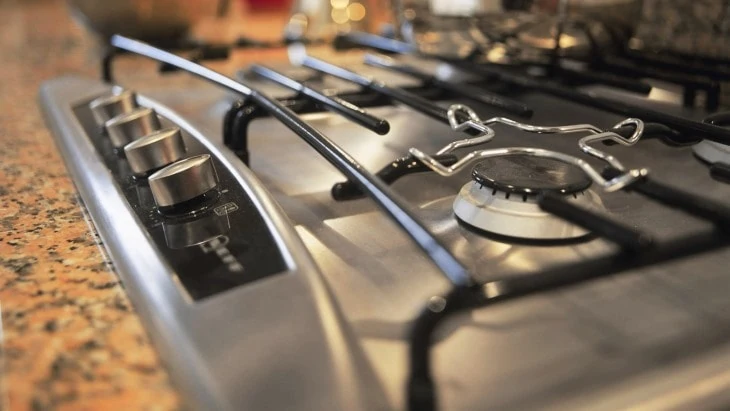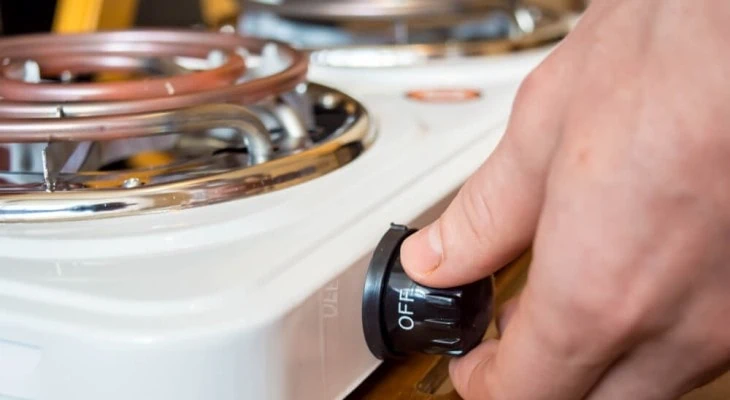It is never recommended to walk away from your gas stove after you’ve turned it on, but sometimes a simple distraction or absent mind may cause this situation to arise. While some models have an automatic shutoff for these scenarios, you can never be too careful.
Accidentally leaving your gas stove on without a flame for a short while like 30 minutes to an hour does not necessarily mean imminent danger, but you will need to immediately shut off the stove and allow the gas to dissipate before you can safely continue cooking.
Table of Contents
The Dangers of Leaving a Gas Stove On without Flame

Most gas stoves run on natural gas, which means there is an underground gas line that runs directly to your house to provide the ignition source for your stove and also your water heater (if it’s not an electric water heater).
It is also possible to use propane instead of natural gas, which is most often prominent in RVs. Both natural gas and propane emit carbon monoxide. The two biggest risks in using either type of gas for your appliances are fire and carbon monoxide poisoning.
Fire Danger
Gas is combustible and so are its byproducts. Having gas continuously leak into an enclosed space means that if enough of it is built up, the smallest spark can ignite it.
If you keep your refrigerator and other electrical appliances in your kitchen, it can pose a serious safety hazard if you accidentally keep your gas burners on without flame for more than a couple of minutes.
Basically, even the smallest spark can ignite a fire when there’s enough gas flowing around your kitchen. And often all it takes to generate that spark is simply turning on an electrical switch! So, you can easily understand the seriousness of the situation.
Although it primarily depends on the level of ventilation, it can easily take upwards of an hour for all the gas to dissipate out your windows, if you left the gas stove on without flame overnight. If you only left the gas stove on for a few hours, it’ll probably be fine within half an hour.
Carbon Monoxide Poisoning
Carbon monoxide is a result of incomplete combustion and is not a part of gas itself. It occurs when there isn’t enough oxygen in the room to properly burn the fuel. Usually, if a flame goes out or does not spark to begin with, carbon monoxide will begin to build up.
What makes carbon monoxide so dangerous is that it is most often undetectable because it has no smell and no taste. This is why carbon monoxide detectors and alarms are becoming increasingly common in households these days.
If the carbon monoxide levels are high enough, you may start to experience dizziness, headaches, nausea, and in extreme cases – lose consciousness.
It is absolutely crucial that if you are experiencing these symptoms, you need to get outside right away to get fresh air and call an ambulance. Carbon monoxide poisoning needs immediate medical attention because it can be deadly if left untreated.
How to Tell If You Have a Buildup of Gas
Now that we’ve gotten the scary stuff out of the way, rest assured that if you have left the gas stove on for 20-30 minutes, you will most likely be just fine.
Gas naturally has no odor but thankfully, industrial professionals know this and have found a way to combat it.
Both natural gas and propane have an added chemical called mercaptan. It is completely harmless and is solely there to make the gas detectable by odor. It is what gives gas that distinct spoiled egg smell.
Since carbon monoxide is a byproduct of incomplete combustion, there’s no way to add an odor to it beforehand. The best form of defense is a carbon monoxide detector installed in your home and near your gas-fueled appliances.
So simply use your nose to detect the gas and check your carbon monoxide levels to determine how much has built up. Always err on the side of caution if you are unsure.
What to Do If You Accidentally Left Gas Stove On Without Flame

Don’t fret if you notice your flame has gone out or that it never ignited. You can easily remedy the problem and prevent any health risks.
Shut Off the Stove
This may seem obvious, but it needs to be said. Simply opening a window to air out your kitchen isn’t going to fix the problem unless you cut off the source.
You may have been working on that pasta sauce for a few hours, but your safety is more important than your food right now.
Don’t Turn Anything On
After you’ve shut your stove off, avoid plugging in any appliances (including a fan) or flipping any other electrical switches.
While it’s a small risk, there is the possibility that any electrical spark can cause the gas that has been leaking into the air to catch fire.
Additionally, if your garage is in close proximity to your kitchen, you should also avoid igniting your cars, since the spark plug of gasoline-powered cars can cause any built up gas to catch fire.
Air It Out
Open any windows and doors to allow the built-up gas to dissipate. Wondering how long to air out house after gas burner left on? This can take anywhere from 15 minutes to 2 hours, depending on the length of time the stove was on and the size of the room.
If you only left the gas stove on for 30 minutes, it shouldn’t take too long. But as mentioned before, err on the side of caution and give your room plenty of time to ventilate.
If you accidentally left gas stove on without flame overnight, it’ll naturally much take longer for the gas to dissipate, since the amount of gas already accumulated in your kitchen and spread across your house will be much more in quantity.
If you experience any adverse effects, seek medical attention immediately.
Final Thoughts
Accidents happen, but leaving the stove on by accident should be taken seriously. Even though you can patiently wait for the gas to dissipate and ventilate the room, you don’t want to take any chances when it comes to your health and safety.
When in doubt – air it out!

